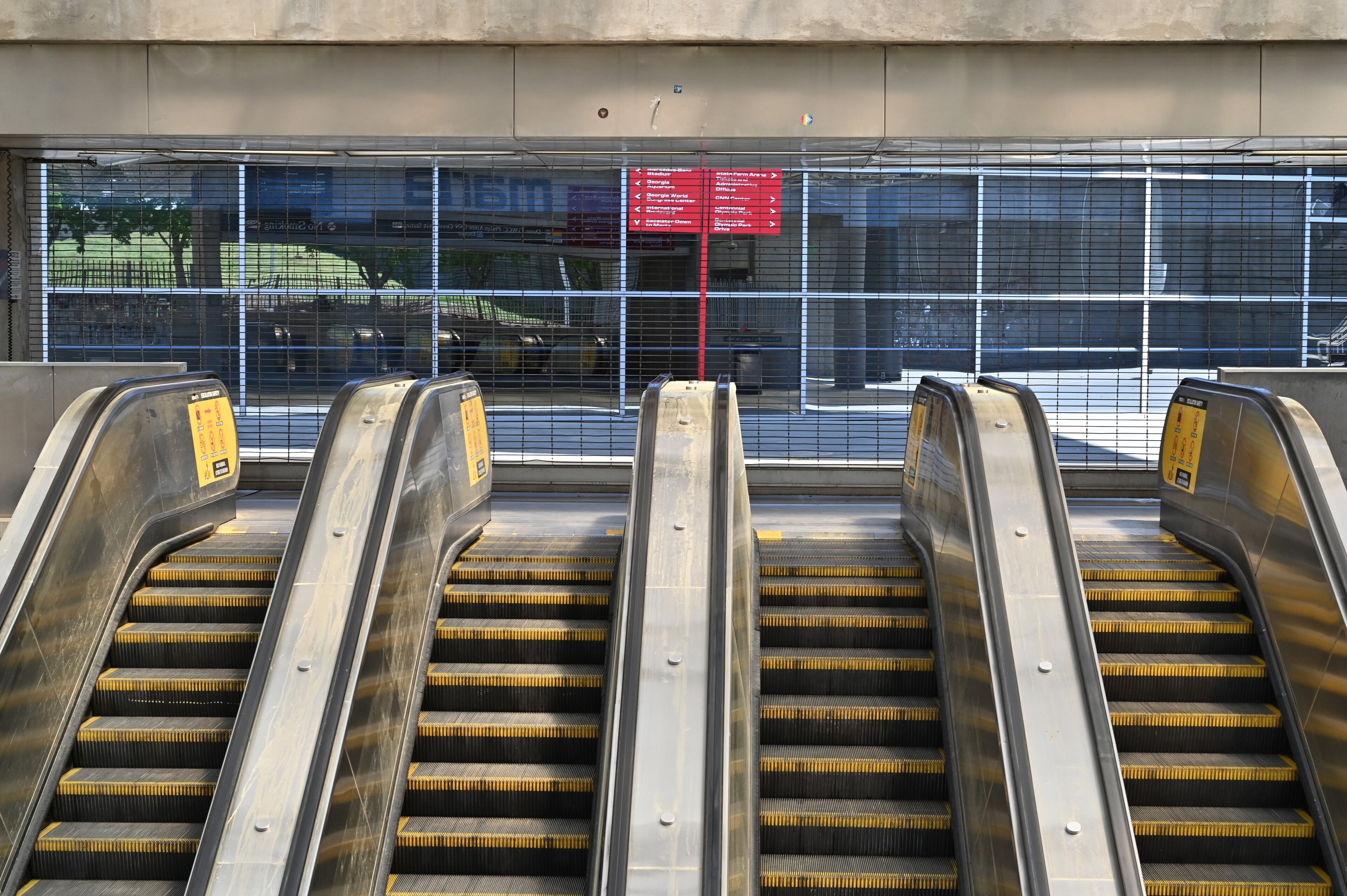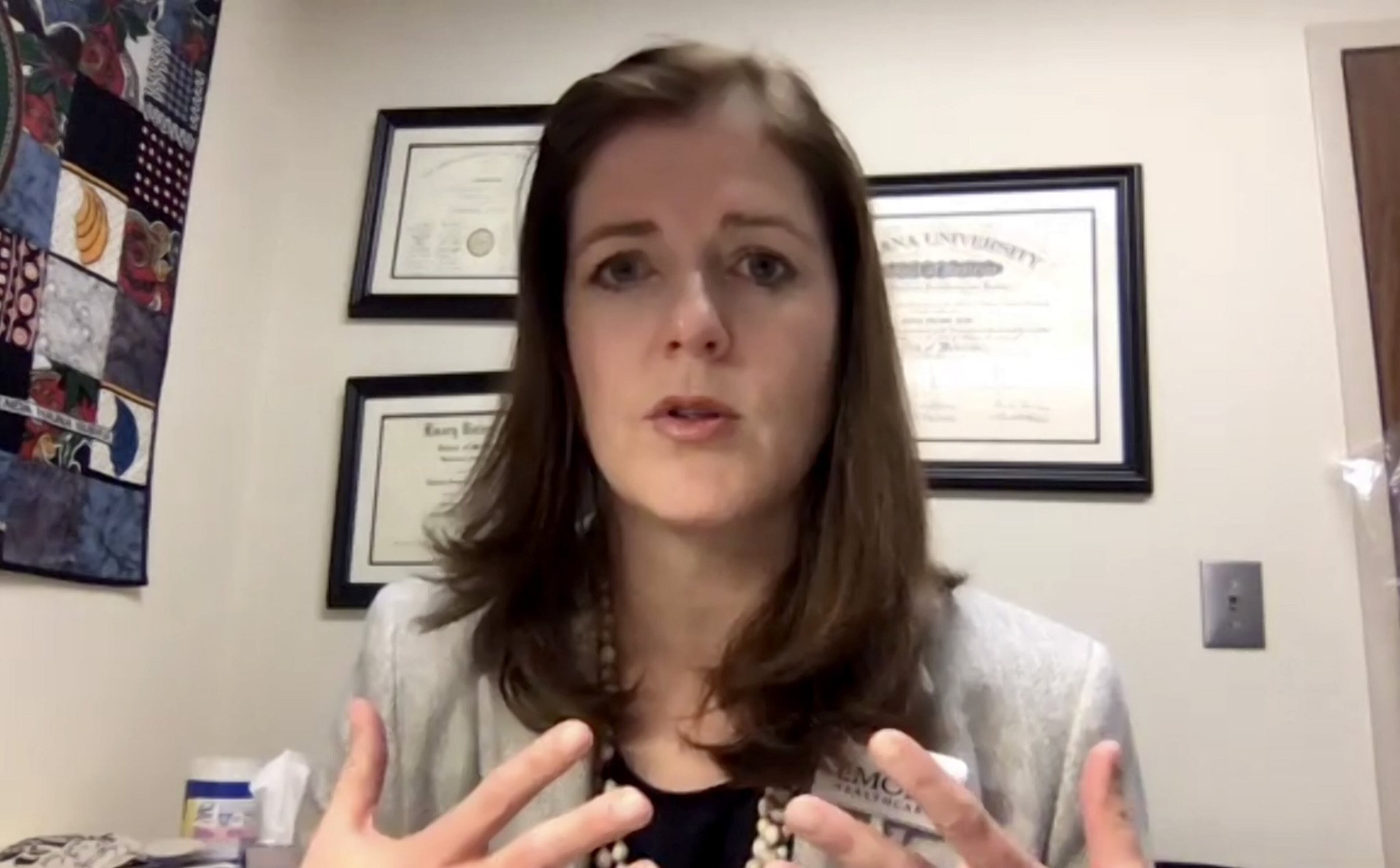A look at major COVID-19 developments over the past week

State and local officials took more aggressive actions during the past week to stem the spread of coronavirus infections, which are predicted to peak in Georgia this month.
Social distancing, experts say, is crucial in the fight to end the pandemic. The state’s residents are now “sheltering in place,” and schools, as well as many offices and businesses, remain closed.
Here is a look at major COVID-19 developments over the last week:
Kemp puts Georgia on lockdown
Gov. Brian Kemp on Thursday ordered Georgians to stay at home, with few exceptions, until at least April 13 to help curb the ever-worsening spread of the novel coronavirus.
In issuing the shelter-in-place mandate, Kemp abandoned his earlier declarations that the coronavirus pandemic did not require extreme measures in Georgia and that local officials knew best how to combat the virus in their communities.

Some local officials and public health experts had complained that a patchwork of local social-distancing measures would not prevent widespread coronavirus infections.
The order temporarily alters the daily lives of the state’s 10.6 million residents. Kemp instructed Georgians to isolate themselves except for “essential services,” such as buying groceries and medicines, seeking medical care or traveling to jobs required for “minimum basic operations” and “critical infrastructure.”

COVID-19 peak still weeks away
The number of COVID-19 deaths in Georgia should peak April 23, according to one model cited Monday by Emory infectious disease expert Dr. Carlos del Rio. On that day, an estimated 84 people will die, according to predictions from the Institute for Health Metrics and Evaluation.
That means that coronavirus infections in the state will likely reach their highest point a few days before, according to del Rio.
“I tell people my phrase is, let’s erase April,” he said. “The most important thing we can do is stay home. Staying home saves lives.”
The IHME predicts Georgia will face a shortage of 755 ICU beds on April 22, which is considered the peak day for hospital resources needs.
» COMPLETE COVERAGE: What you need to know about coronavirus in Georgia
» MORE: What Georgians need to know about shelter-in-place order

Hospitals brace for “super surge”
Hospitals across the state are already grappling with diminishing amounts of protective gear and bed space for patients sick with COVID-19.
Dr. Colleen Kraft, associate chief medical officer at the Emory University, said her colleagues are doing what they can to be prepared and to free up bed space in advance of the coming “super surge.”

Georgia jobless claims skyrocket
The Georgia Labor Department said Thursday that it had processed 133,820 claims for unemployment benefits the week before – a stunning increase that reflects the virtual shutdown of many sectors in the state’s economy.
It was the highest number of claims ever processed in a week and was more than 10 times the previous week’s number.
The state’s grim report paralleled the nation’s numbers: 6.6 million Americans filed for unemployment benefits last week. The previous week saw 3.28 million around the country file — a record until Thursday.
The tsunami of layoffs, especially among workers in hospitality, transportation and entertainment, is the result of actions taken to try to slow the spread of the coronavirus.

Schools closed for remainder of school year
People sensed it was coming. But, on Wednesday, Gov. Kemp made it official. He ordered that schools close for the rest of the academic year.
School districts will continue to educate students remotely. But state officials have delayed the high-stakes testing that guides much of the instruction, and should soon have approval from the federal government to scrap the tests altogether.
More than three weeks ago, Fulton County Schools became the first district in the state to close because of COVID-19.
Georgia Tech make protective gear for medical community
A team of Georgia Tech researchers is mass producing protective gear to help Atlanta’s medical community fight the spread of COVID-19.
Using 3D printers and laser cutting machines, the researchers made at least 10,000 face shields, which protect clinicians’ eyes and faces from the coughs and sneezes of those infected with the coronavirus.
For the past two weeks, researchers have been working 16-hour days to crank out the easy-to-clean, reusable protective wear, said Chris Saldana, a mechanical engineering professor at Georgia Tech.
As production increased, the initial team of six researchers doubled to crank out the shields.
“I’ve had some people almost in tears because they were touched when Georgia Tech offered us PPEs (personal protective equipment),” said Kari Love, infection prevention director at Emory Healthcare.
Staff writers Greg Bluestein, Ty Tagami, Michael E. Kanell and Raisa Habersham contributed to this article.

